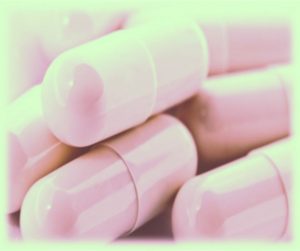Navigation:
[vc_row][vc_column][vc_cta h2="Help Is Only A Phone Call Away" txt_align="center" shape="round" style="flat" color="vista-blue" el_width="sm" use_custom_fonts_h2="true" use_custom_fonts_h4="true"]Call Now 855-227-9535[/vc_cta] As a prescription medication that’s associated with the treatment of opioid and alcohol addiction, Naltrexone often makes people wonder if it’s a narcotic. And because some narcotics can be dangerous when misused, it is important to learn more about them. Here we’re going to talk about some of the things you need to know about naltrexone. Is it an opiate? Can it be abused? Does it cause a high? How effective is it as a part of medication-assisted treatment programs? Let’s take a closer look.Naltrexone: What is it?
 Naltrexone tablets are often prescribed for people who are struggling with opioid or alcohol addiction and dependence. It can be taken at home, but in some cases it has to be administered by a medical professional during a comprehensive addiction treatment program. It works by blocking the effects of narcotics. In the medical industry, narcotics are either opiates or opioids. This may be a bit confusing to those who are familiar with how the term is used in law enforcement: sometimes narcotics simply refer to illegal drugs or mind-altering substances—doesn’t matter if it’s an opiate or an opioid, or any other kind of drug.
Naltrexone tablets are often prescribed for people who are struggling with opioid or alcohol addiction and dependence. It can be taken at home, but in some cases it has to be administered by a medical professional during a comprehensive addiction treatment program. It works by blocking the effects of narcotics. In the medical industry, narcotics are either opiates or opioids. This may be a bit confusing to those who are familiar with how the term is used in law enforcement: sometimes narcotics simply refer to illegal drugs or mind-altering substances—doesn’t matter if it’s an opiate or an opioid, or any other kind of drug.
Is it an Opiate?
An opiate is a substance that is naturally derived from the opium poppy plant. On the other hand, opioids are synthetic or semi-synthetic substances derived from the same source. Only opiates and opioids are classified as narcotics. Because of this, naltrexone is not considered an opiate. In fact, it’s not an opioid either. It’s an opioid antagonist because it competes with drugs to take over the opioid receptors in the brain. By occupying these receptors, opioid users become less likely to get high. As a result, they won’t experience the addictive effects of opioids. People also wonder whether you can feel high from taking naltrexone. The answer is no. It’s a medication that, unlike many other substances used for opioid treatment, does not cause a high at all. Keep in mind that narcotics are not inherently bad. They are just as beneficial as other prescription medications. In fact, they are often given as painkillers, helping patients who are struggling with moderate to severe pain. But because of the high they produce, they can get people addicted—especially those who abuse their prescription and take narcotics recreationally to feel euphoric. There are no euphoric effects of naltrexone. But keep in mind that it can cause immediate withdrawal if opioids are taken while on it. Before someone can take naltrexone, they shouldn’t have used opioids for at least seven days. [maxbutton id="3" ] And of course, just because it doesn’t get you high doesn’t mean there are no risks. Naltrexone still causes a few side effects like nausea, vomiting, or dizziness. So to make sure you’re safe, follow your doctor’s prescription carefully. Opioids and opiates are still being abused all over the world. Prescription medications are some of the most widely abused drugs that can get people addicted. And so it is important to know more about these substances. If you know someone who is addicted to opioids or opiates, look for an addiction treatment center near you and find out which programs are suitable for them. The path to sobriety is going to be challenging—but it will be worth it.
Is Naltrexone an Opiate? Find more on: https://www.rehabnear.me/
from
https://www.rehabnear.me/is-naltrexone-opiate/

No comments:
Post a Comment